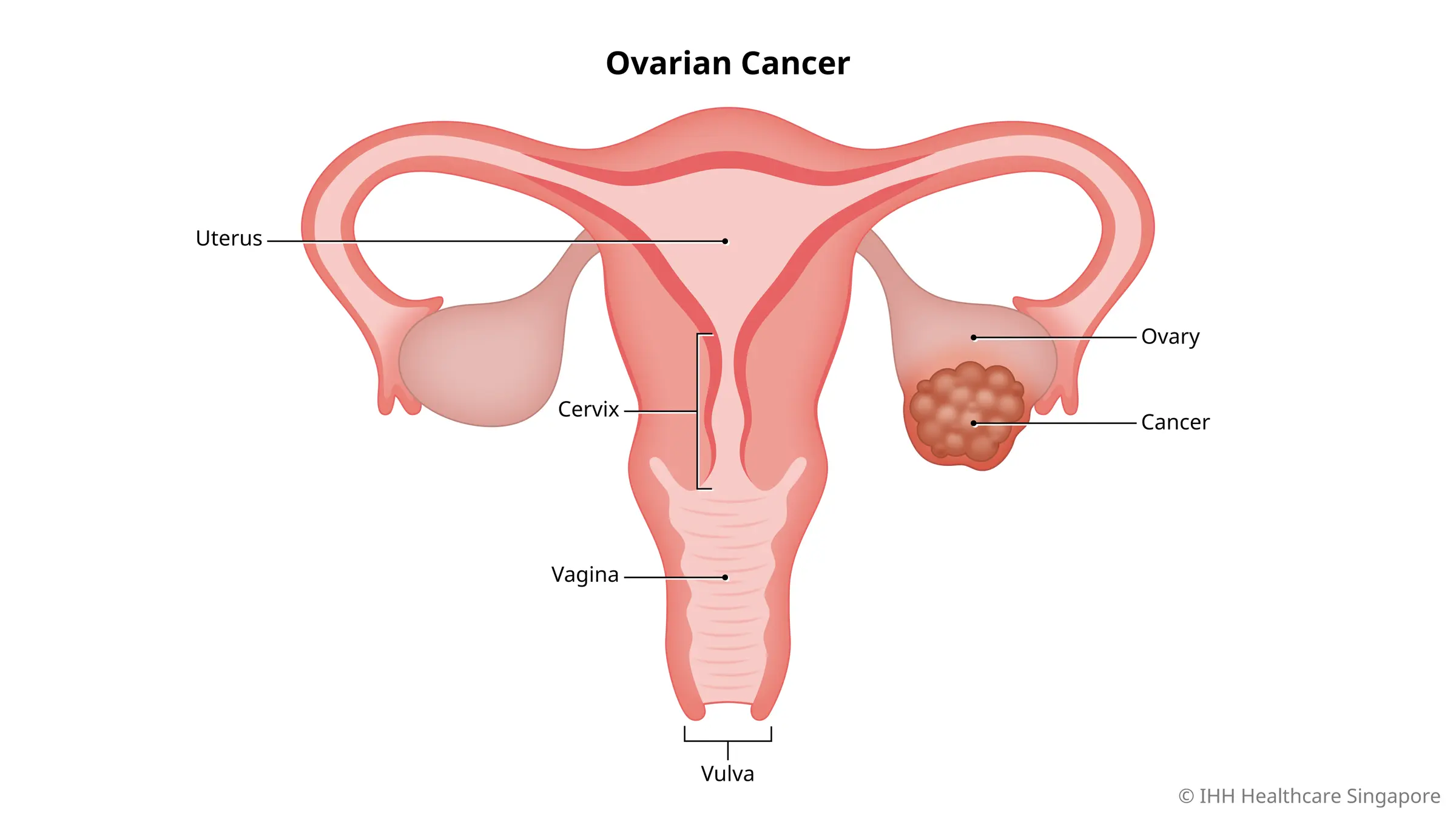Ovarian Cancer
What is ovarian cancer?
Ovarian cancer is an abnormal growth of tissue in the ovary. The ovaries are part of the female reproductive system where the eggs are produced. Most ovarian cancers develop on the surface of the ovary.
Types of ovarian cancer
There are 3 main types of ovarian cancer:
- Epithelial tumours develop on the epithelium (surface) of the ovary and are the most common type
- Germ cell tumours occur in the cells that produce the eggs and can develop in younger women
- Stromal tumours develop in the hormone-producing (oestrogen and progesterone) part of the ovary. Oestrogen and progesterone are the hormones that regulate the menstrual cycle.
What are the symptoms of ovarian cancer?
Symptoms of ovarian cancer include:
- Abdominal swelling and discomfort (pressure, fullness or bloat)
- Changes in bowel habits, eg. constipation
- Loss of appetite or weight loss
- Lower back pain
- Pain during sexual intercourse
- Persistent indigestion or nausea
- Frequent need to urinate
What are the causes of ovarian cancer?
The exact cause of ovarian cancer is not known, although there may be some risk factors that increase the chance of its development.
What are the risk factors for ovarian cancer?
You may be at risk of developing ovarian cancer if you:
- Had your first pregnancy at an older age or have never been pregnant
- Had your menopause at a late age
- Have a family member with ovarian cancer (especially if they have the BRCA gene)
- Have endometriosis, a condition where the endometrium tissue that normally lines the inside of the uterus (womb) grows outside the uterus
- Have had breast cancer
- Started menstruating at a young age
- Used hormone replacement therapy for more than 5 years
- Were overweight in early adulthood
However, the risk of ovarian cancer developing in a woman is about 1 in 81, and this tumour is usually 'silent'. The symptoms are vague and usually not detected until the disease is advanced. So, even if you do not have risk factors for the cancer, it is important to consider the possibility if you have the symptoms.








